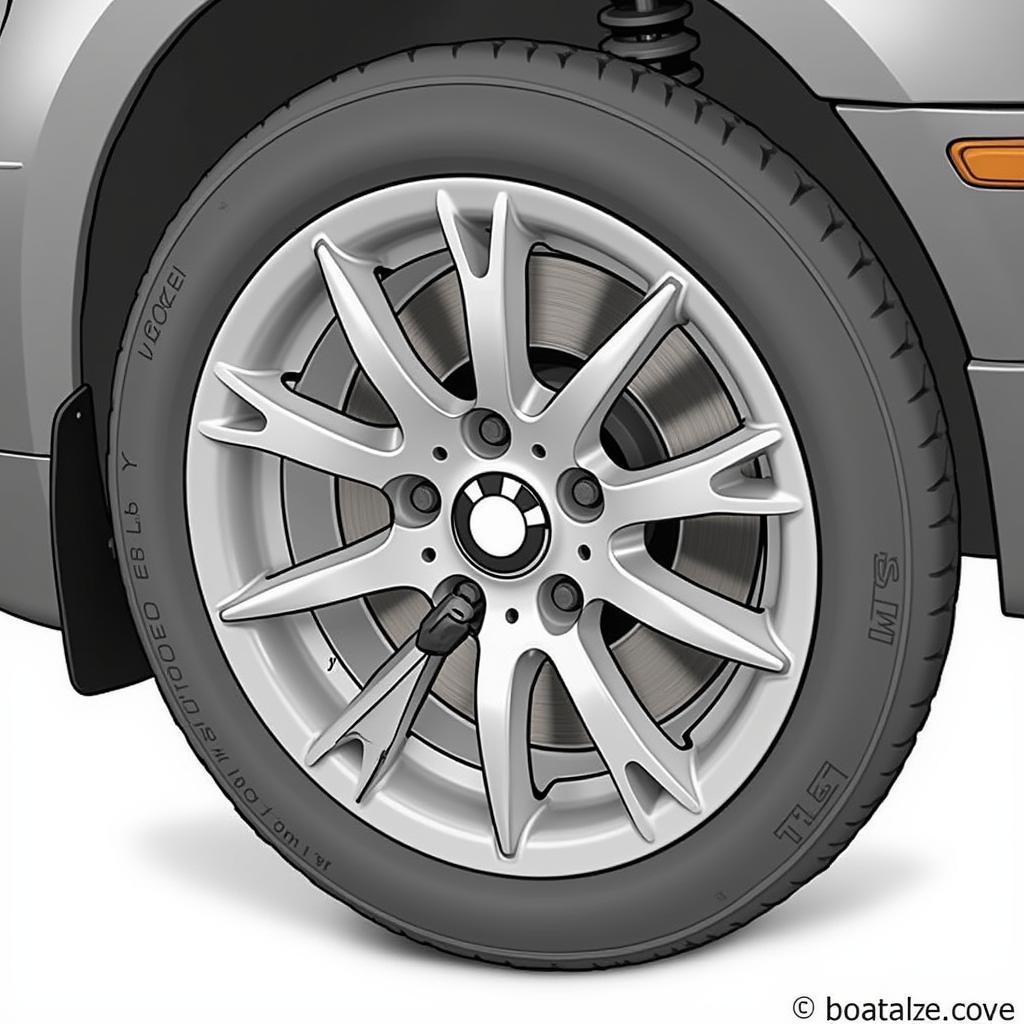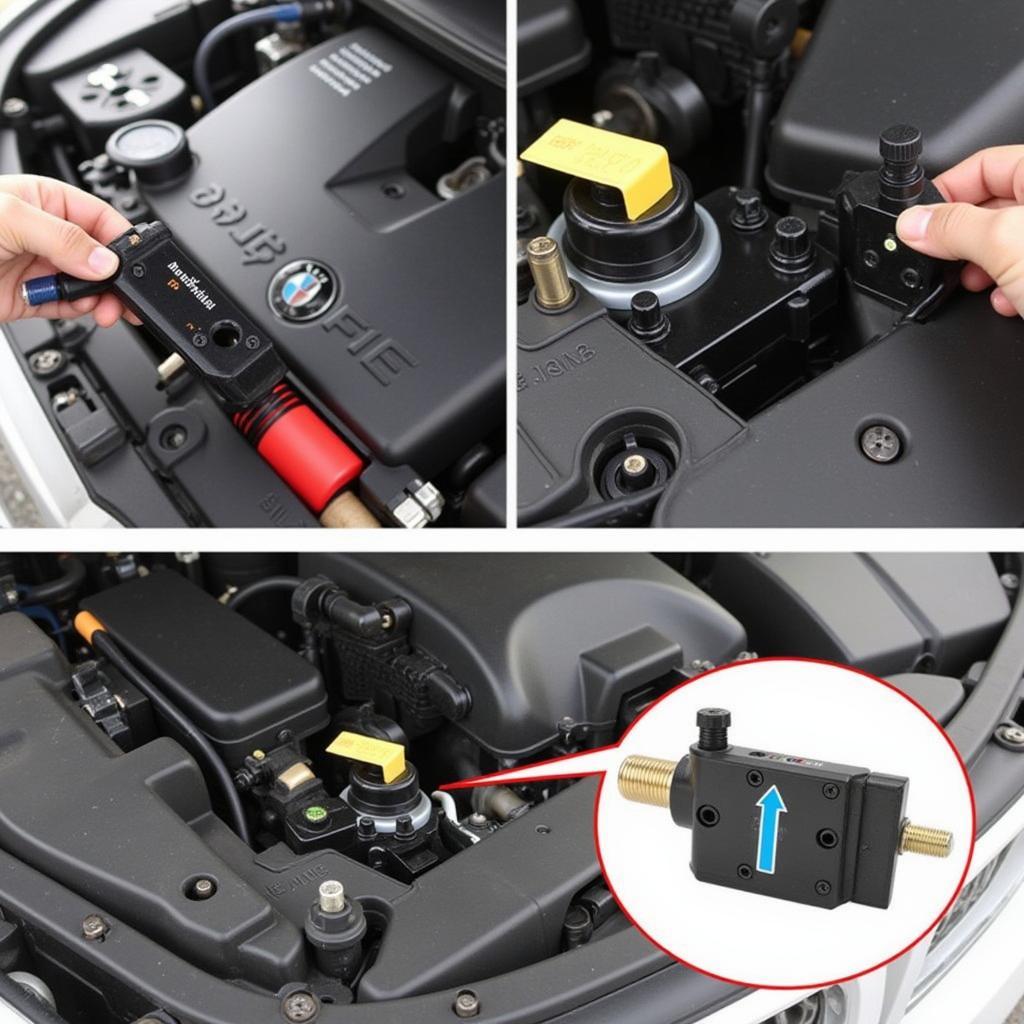The dreaded ABS and brake warning lights illuminating your BMW’s dashboard can be a nerve-wracking experience. These lights indicate a potential problem with your vehicle’s braking system, compromising its ability to stop safely. Understanding the potential causes and solutions for a BMW ABS and brake warning light is crucial for any BMW owner.
Understanding Your BMW’s Braking System
Before delving into the causes, it’s essential to understand the basics of your BMW’s braking system. It comprises two main components:
- Anti-lock Braking System (ABS): Prevents wheel lockup during hard braking, allowing you to maintain steering control.
- Brake Control Module: The “brain” of the braking system, responsible for receiving sensor data and regulating brake pressure.
When these lights turn on, it signifies an issue detected by the system, ranging from minor to serious.
Common Causes of ABS and Brake Warning Lights
Several factors can trigger the ABS and brake warning lights in your BMW. Here are some of the most frequent culprits:
1. Worn Brake Pads and Rotors
This is the most common and often the least serious issue. Your BMW is equipped with brake pad wear sensors that trigger the warning lights when the pads reach a certain level of wear.
2. Faulty ABS Wheel Speed Sensors
 BMW ABS Wheel Speed Sensor Location
BMW ABS Wheel Speed Sensor Location
These sensors monitor the rotational speed of each wheel. If a sensor malfunctions or becomes covered in dirt or debris, it can disrupt the ABS system, illuminating the warning lights.
3. Malfunctioning Brake Light Switch
It might seem unrelated, but a faulty brake light switch can also trigger the ABS and brake warning lights. This switch signals the brake lights to illuminate and also plays a role in the ABS system.
4. Low Brake Fluid Level
 Checking BMW Brake Fluid
Checking BMW Brake Fluid
Brake fluid is the lifeblood of your braking system. A leak in the system can lead to low fluid levels, reducing braking efficiency and activating the warning lights.
5. Issues with the ABS Control Module
While less common, problems with the ABS control module can also be the culprit. This module can malfunction due to electrical issues or physical damage.
What to Do When the Warning Lights Come On
If your BMW’s ABS and brake warning lights illuminate, it’s crucial to:
- Stay Calm: Don’t panic. Pull over safely when it’s safe to do so.
- Check Brake Fluid: Carefully inspect the brake fluid level. If it’s low, adding fluid might temporarily address the issue, but a leak needs to be identified and repaired.
- Avoid Driving: If possible, avoid driving your BMW until the issue is diagnosed and repaired by a qualified mechanic.
Diagnosing the Problem: DIY vs. Professional
While some potential causes, like worn brake pads, can be visually inspected, pinpointing the exact issue often requires specialized diagnostic equipment.
DIY Diagnosis:
- You can check for obvious signs like severely worn brake pads or low brake fluid.
- OBD-II scanners can sometimes provide basic error codes related to the ABS system.
Professional Diagnosis:
- Mechanics specializing in BMWs have the experience and tools to accurately diagnose the problem.
- They can access and interpret BMW-specific fault codes, providing a more precise diagnosis.
Remote Software Solutions: The Future of BMW Diagnostics
Advancements in automotive technology have paved the way for remote diagnostics and software solutions.
“Remote diagnostics allow us to quickly identify the root cause of warning lights like the ABS and brake light,” says Alex Turner, a senior BMW technician at Munich Motors. “This technology minimizes downtime for the customer and allows us to provide more efficient service.”
Through remote software updates and coding, qualified technicians can sometimes resolve software-related issues without needing your physical presence at the workshop.
Preventing Future Issues
While not all brake system problems are preventable, regular maintenance can significantly reduce your chances of encountering ABS and brake warning lights:
- Routine Brake Inspections: Adhere to your BMW’s recommended brake inspection schedule.
- Timely Brake Pad and Rotor Replacement: Don’t ignore the early signs of worn brake pads.
- Regular Brake Fluid Flushes: Brake fluid deteriorates over time and should be flushed according to BMW’s guidelines.
Conclusion
Experiencing ABS and brake warning lights in your BMW can be stressful. Understanding the common causes, knowing what to do, and prioritizing preventative maintenance are essential steps in ensuring your safety and the longevity of your BMW’s braking system. Remember, if in doubt, always consult a qualified BMW mechanic for diagnosis and repair.
